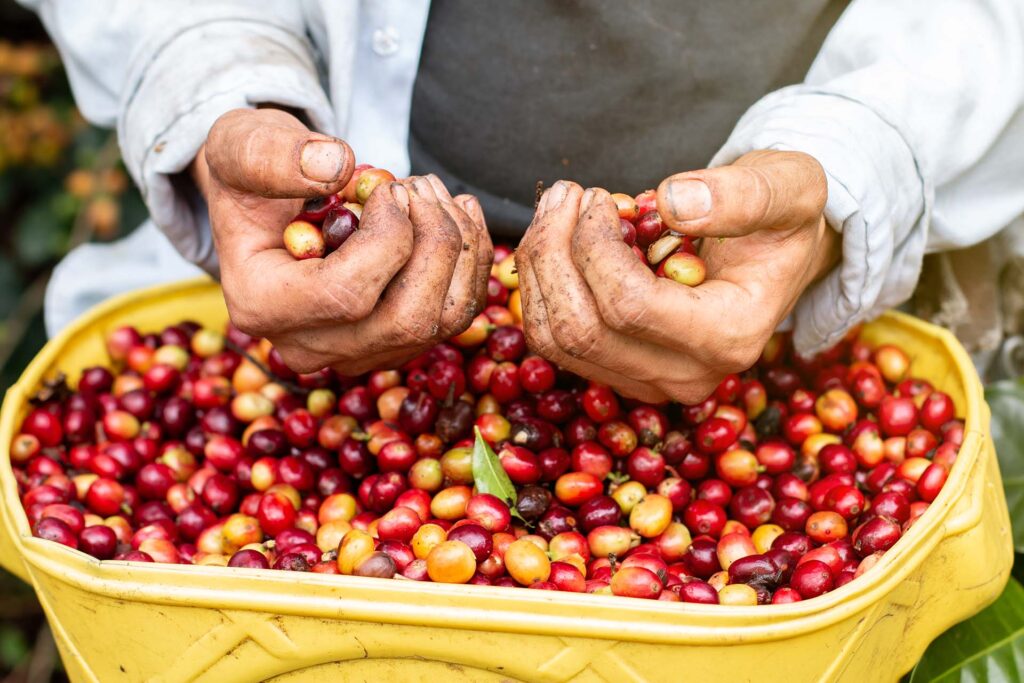The speciality coffee and the journey from farm to cup significantly impact the quality of your morning brew. Behind every exceptional coffee experience lies a complex supply chain, and direct trade has emerged as a transformative approach to coffee bean sourcing. This relationship-focused model connects roasters directly with producers, bypassing traditional intermediaries and creating value for everyone involved.
Direct trade means – Beyond a marketing term
Direct trade represents a purchasing model where coffee roasters buy directly from the farms or cooperatives that grow their beans. Unlike fair trade certification, which operates on standardized rules, direct trade functions on personal relationships and customized agreements between buyers and producers.
This sourcing model empowers roasters to:
- Develop long-term relationships with specific farms
- Gain transparency into production methods
- Ensure quality control from the beginning
- Pay prices that reflect true quality rather than commodity markets
Producers’ benefits include higher compensation, more predictable income, and valuable feedback that help them improve their crops. This symbiotic relationship builds trust and sustainability that transcends typical business transactions.
Quality implications of relationship-based sourcing
When roasters work directly with farmers, quality improves dramatically for several reasons:
- Selective harvesting– Direct relationships allow roasters to communicate their preferences for specific varieties and processing methods. Farmers then apply this knowledge to their harvesting and processing techniques.
- Continuous feedback loop- Regular communication between farmers and roasters improves bean quality as producers receive direct input about their coffee.
- Investment in infrastructure- The higher prices paid through direct trade enable farmers to invest in better equipment, from washing stations to drying beds, further enhancing quality.
- Experimental microlots– With assured buyers, producers feel empowered to experiment with small batches of coffee using innovative processing methods, creating unique flavor profiles.
These quality improvements don’t happen overnight. Successful direct trade Coffee bean sourcing relies on years of collaboration and trust between farmers and buyers.
Sustainability through direct relationships
Direct trade naturally encourages sustainable farming practices because:
- Long-term relationships mean buyers are invested in the land’s continued productivity
- Higher prices make sustainable practices financially viable for farmers
- Roasters can request and incentivize specific environmentally-friendly practices
- Farms can afford organic or other ecological certifications with direct trade premiums
Many direct trade partnerships now include environmental components, such as shade-growing requirements or water conservation measures, further protecting the delicate ecosystems where coffee thrives.
Creating value throughout the supply chain
The most successful direct trade relationships create value at every stage of the coffee journey. Farmers receive fair compensation and valuable market feedback. Roasters access exceptional beans with unique stories. Consumers enjoy superior coffee with transparent origins. This value creation stems from replacing transactional purchases with on-going partnerships based on mutual respect and shared goals. Everyone benefits from quality improvements by investing in relationships rather than buying commodities.
The speciality coffee industry continues to demonstrate that ethical sourcing and exceptional quality aren’t competing for priorities but complementary goals. Through direct trade coffee bean sourcing, the sector creates a model where doing well and making excellent products naturally align, setting an example for other agricultural industries to follow.

